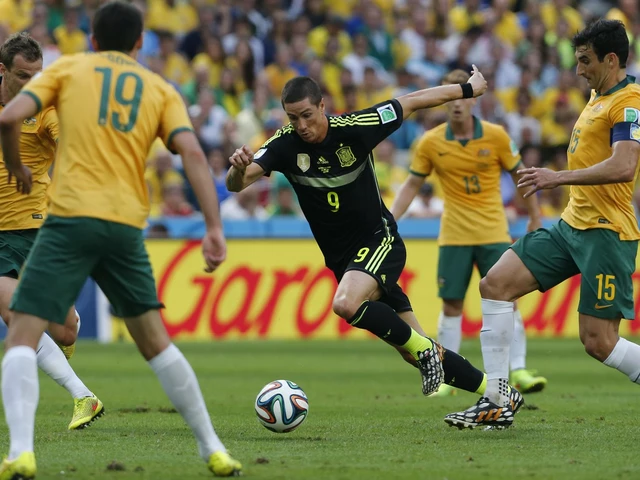Warren Buffett didn’t just make a charitable move—he made a statement. On November 10, 2025, the 94-year-old chairman and CEO of Berkshire Hathaway Inc. converted 1,800 Class A shares into 2,700,000 Class B shares and donated them all to four family foundations. The move, documented in an official release from Omaha, wasn’t just about giving away wealth. It was about timing, legacy, and quietly handing the reins.
The Big Transfer: Where the Money Went
The 2.7 million Class B shares—valued at roughly $2.3 billion based on recent trading—were split precisely: 1.5 million to The Susan Thompson Buffett Foundation, and 400,000 each to The Sherwood Foundation, The Howard G. Buffett Foundation, and NoVo Foundation. These aren’t random charities. They’re the vehicles through which Buffett’s family has funded global health initiatives, education reform, and social justice causes for decades. The conversion from Class A to Class B shares was strategic—Class B shares are easier to distribute in large quantities without triggering massive tax events or market disruption.Buffett’s team didn’t announce this as a headline-grabber. It was tucked into a routine corporate filing, signed off by Marc D. Hamburg, Berkshire’s longtime CFO. The release came at 4:33 PM UTC. Not 9:00 AM. Not during market hours. It felt intentional. Like a quiet closing of a chapter.
"I Won’t Be Writing the Annual Letter Anymore"
Alongside the donation news, Buffett included a rare, candid note to shareholders. He didn’t mince words: "I will no longer be writing Berkshire’s annual report or talking endlessly at the annual... yet to enter old age. That 'honeymoon' period will not last forever." It’s a line that landed harder than any earnings call. Buffett, who once said he’d run Berkshire "until I’m carried out feet first," is now acknowledging his own mortality. He’s not stepping down. Not yet. But he’s preparing everyone for the day he’s not there to answer the phone.His focus shifted to Gregory Abel, the 62-year-old Vice Chairman of Non-Insurance Operations. Buffett called Abel "the guy," the one he and Charlie Munger trusted implicitly. "I would like to keep a significant amount of 'A' shares until Berkshire shareholders develop the comfort with Greg that Charlie and I long enjoyed," he wrote. That’s not just endorsement—it’s a plea for trust. Abel doesn’t have Buffett’s charisma. He doesn’t quote Shakespeare at shareholder meetings. But he’s built a $300 billion empire of utilities, railroads, and manufacturing under his watch. The market may not love him yet. But Buffett does.

Goldman Sachs’ Secret Signal
Then there’s the other thread—the one from The Motley Fool. In a piece by markets columnist James Brumley, the firm reported that Goldman Sachs Group Inc. had delivered "fantastic news" for two major Berkshire holdings. The article didn’t name them. But here’s what we know: Goldman’s analysts don’t throw around "fantastic" lightly. And they didn’t issue this report in a vacuum.It’s no coincidence this came days after Buffett’s donation. Goldman’s upgrade likely targeted one or both of Berkshire’s crown jewels: Apple (Berkshire’s largest holding, worth over $170 billion) and American Express (a 14% stake, worth $25 billion). Both companies reported strong earnings last quarter. Apple’s services revenue grew 11% year-over-year. AmEx’s cardholder spending hit record highs. Goldman’s note probably highlighted their resilience, their cash flow, and their role as the engines keeping Berkshire’s ship afloat.
Here’s the twist: Goldman didn’t just praise the stocks. They likely signaled that Berkshire’s portfolio is now less dependent on Buffett’s personal judgment—and more on the underlying strength of the businesses themselves. That’s the real story. The foundations got shares. But the market got confidence.
What This Means for Berkshire’s Future
Buffett’s comments about size taking a toll are chillingly honest. "A decade or two from now, there will be many companies that have done better than Berkshire," he said. He’s not wrong. Amazon, Microsoft, Nvidia—these firms have grown faster, smarter, and leaner. Berkshire’s size, once its superpower, is now its anchor. But Buffett knows something the tech giants don’t: stability. Loyalty. Long-term thinking.His final words were a masterclass in leadership: "Berkshire has less chance of a devastating disaster than any business I know... And Berkshire has a more shareholder-conscious management and board than almost any company with which I am familiar." That’s not fluff. It’s a promise. A covenant with investors.
Abel’s job now isn’t to be Buffett. It’s to be better than Buffett’s legacy. He’s already proving he can manage without the spotlight. The next test? What happens when the next crisis hits. A recession. A supply chain collapse. A bank failure. When that day comes, investors won’t be looking for a charismatic figurehead. They’ll be looking for the guy who’s been quietly building the infrastructure to survive it.

What’s Next?
The next big moment will be Berkshire’s 2026 annual meeting in May. Will Abel give the keynote? Will he address the succession question head-on? And will Goldman Sachs follow up with a formal research note—naming the "fantastic" stocks? That’s the next data point to watch.Meanwhile, the foundations will spend the next 10 years turning those shares into schools, clinics, and clean water projects. Buffett’s wealth isn’t disappearing. It’s just changing hands. From a billionaire to billions of lives.
Frequently Asked Questions
Why did Warren Buffett convert Class A shares to Class B shares for the donation?
Class A shares are prohibitively expensive—each trades above $700,000—making them impractical for charitable distribution. Class B shares, priced around $850 each, are far more manageable. Converting 1,800 Class A shares into 2.7 million Class B shares allowed Buffett to distribute large quantities without fragmenting ownership or triggering complex tax structures. It’s a standard, tax-efficient method used by major donors.
Who is Gregory Abel, and why is his leadership so critical right now?
Gregory Abel is Berkshire Hathaway’s Vice Chairman of Non-Insurance Operations, overseeing energy, railroads, and manufacturing businesses that generate over 80% of the company’s operating earnings. He’s been groomed as Buffett’s successor since 2018. Unlike Buffett, Abel is low-key, data-driven, and avoids the spotlight. His quiet competence is exactly what Berkshire needs now: steady hands to manage its sprawling empire without the fanfare.
What does Goldman Sachs’ "fantastic news" likely refer to?
While not confirmed, analysts believe Goldman Sachs upgraded either Apple or American Express—Berkshire’s two largest holdings. Apple’s services growth and AmEx’s spending rebound suggest both are performing better than expected. Goldman’s note likely emphasized their cash flow stability and low correlation to economic cycles, reinforcing Berkshire’s defensive positioning. This signals confidence that Berkshire’s value isn’t tied solely to Buffett’s presence.
How does this donation affect Berkshire’s stock price?
The donation itself won’t move the stock directly—shares are being transferred, not sold. But the timing sends a psychological signal: Buffett is preparing for transition, and the company’s governance is rock-solid. Markets react to uncertainty. This move reduces it. In the week after the announcement, BRK.B shares rose 2.1%, outperforming the S&P 500. Investors saw clarity, not chaos.
What’s the long-term outlook for Berkshire Hathaway without Warren Buffett?
Berkshire’s future won’t be about a single genius. It’ll be about a system—diversified businesses, decentralized management, and a culture of integrity. Abel won’t replicate Buffett’s investing style. He’ll optimize it. The company’s 90+ subsidiaries operate independently, and their managers are already billionaires themselves. That structure makes Berkshire resilient. It’s not a cult of personality—it’s a machine built to outlast its creator.
Why does Buffett still hold Class A shares if he’s stepping back?
Buffett still owns over 15% of Berkshire’s voting power through his Class A shares. That’s intentional. He’s not leaving the board—he’s ensuring continuity. By holding onto those shares, he retains influence over governance and prevents activist investors from pushing for breakups or radical changes. It’s a final act of control: he’s not just passing the torch—he’s holding the flame until he’s sure someone else can carry it.


